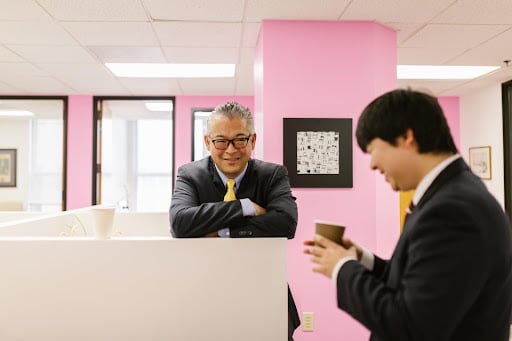
As we are all living longer and pension ages are rising, it is fair to say that your older workforce is also your future workforce.
If you neglect this group, you will be storing up a number of problems for the future, and you could even find yourself on the wrong side of a discrimination lawsuit.
With that in mind, let’s take a look at some of the best things you can do to help to integrate older workers and enable them to thrive:
Upskill
Things change fast in the workplace, and with the speed that technology is developing, they are only going to move faster in the future. If you want your business to stay at the cutting edge, then it makes sense to upskill your older workers.
For example, putting some of your older employees through a cyber security training program will not only ensure that they have valuable skills to help your business thrive in the future, but it will ensure that your business is much safer from the threat of cybercrimes. Cybercrime costs the economy more than 1 trillion dollars globally and many businesses that are affected never recover from the loss of valuable data and PR disaster attached so making sure your employees are equipped to deal with this is extremely important. Also, by making sure that they are well trained to use latest software and online tech, this will help to prevent older workers feeling sidelined and help them feel included and worthwhile as part of the company.
Encourage peer-to-peer mentoring
Your older employees may already have a wealth of knowledge and experience behind them because of course, they will have been in the workforce for quite some time. That means that they are one of your business’s best assets when it comes to training.
Peer-to-peer mentoring has been shown to be a very effective way to train and upskill employees as they can learn on the job from someone who has been there and done it all before, and of course, moving your older employees into training-based roles as they get older is likely to be a much gentler experience for them too. You cannot buy wisdom and experience, but older workers will most likely have much useful information to share.
Foster an adaptive thinking mindset
By cultivating a culture of adaptive thinking in the workplace, this is to prevent outmoded forms of thinking from prevailing among employees, and foster a greater level of understanding between different generations in the workplace.hey are at and serve their needs will also raise levels of wellbeing and help everyone to feel included. This, in turn, will also most likely improve how employees interact, and spark new innovation within your company.
Offer sabbaticals
Older employees are more likely to need time out from the workforce to care for sick relatives or focus on their own health. By offering the possibility of sabbatical breaks, you can ensure your company keeps hold of your older and more experienced employees and all of their skills by ensuring that they have access to time out when they need it most.
Older employees are valuable employees, so dismissing them as no longer being useful to the company once they hit a random age is not a sensible move – it may potentially also be an illegal form of workplace discrimination.
Instead, if you support them well and utilise them to their full potential, your business will be all the better for their presence.





